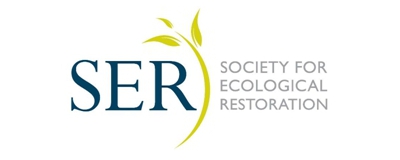 |
|
The Society for Ecological Restoration Australasia Awards - 2018Nominations are now open for outstanding projects from Australia, New Zealand and the Pacific islands to be considered for SERA’s biennial awards for (i) excellence in ecological restoration practice, (ii) the most outstanding student project and (iii) extractive industries restoration excellence.
The nomination period closes 31 August 2018.
(I) The SERA Award for Restoration Excellence
This award acknowledges individuals or organisations that have made a significant and enduring contribution to the practice of ecological restoration through outstanding on-ground restoration projects. There are two subcategories (a) Larger scale projects (i.e. 50ha and greater) and (b) Smaller scale projects (i.e. below 50 ha). Prize for large-scale projects: $2,000 plus certificate and trophy Prize for small-scale projects: $1,000 plus certificate and trophy Criteria: Projects must demonstrate many of the following characteristics:
Eligibility: Any individual, group of individuals or organisation in Australasia (see SERA website for geographical extent) is eligible from all biomes including terrestrial and aquatic. (II) The SERA Student Award This award recognizes students that have made a significant impact in advancing the theory, practice, and/or public awareness of restoration through innovative research, tools, publications or technologies. Prize: $1,000 plus certificate and trophy Criteria: The nominee must have demonstrated at least one of following in the development of:
Eligibility: Any enrolled undergraduate or postgraduate student (or one year after completion or conferment of degree) in the field of restoration ecology from a higher learning institution (technical colleges, universities or similar) in Australasia. (III) The Inaugural SERA International Award for Mining (Extractive industries) Restoration Excellence This award recognizes exceptional restoration work undertaken by individual mines and mining companies. Prize: certificate and trophy Criteria: Projects must demonstrate many of the following characteristics:
(IV) The Albert Morris Award This award commemorates the visionary work led by Albert Morris in creating the Broken Hill Regeneration reserves, commencing in 1936[1] Prize: Certificate and trophy Criteria: Projects must demonstrate many of the following characteristics:
Eligibility: Any individual, group of individuals or organisation in Australasia (see SERA website for geographical extent) is eligible from all biomes including terrestrial and aquatic.
NOMINATION AND JUDGING Nominees or nominators need not be members of the Society but nominees must be communicated through an SERA member, and applicable criteria must be met in order for a nomination to be considered. The SERA Awards Committee will select recipients of Awards I-III, based on the selection criteria and limited to 2000 words. The Albert Morris Award recipient will be selected by the Albert Morris Award Committee with representatives from the four initiating Partner organisations. The National Standards for the Practice of Ecological Restoration in Australia will be used as a judging guide for all awards (see http://seraustralasia.com/standards/contents.html). Applicants are asked to structure their nominations using the selection criteria as subheadings and are encouraged to use images and data to demonstrate effect and benefit of their program (including before and after). Additionally, each submitted application should provide a one-minute video to summarise their work and outcomes. The Committee may also seek supporting evidence for a given nomination in the form of publications, site visits, photographs, letters of recommendation from independent referees, or any other appropriate documentation. Awards are presented during an Awards Dinner at the biennial SERA Conference on Ecological Restoration to be held in Brisbane on the 27th of September, 2018. Recipients will be notified in advance of the conference.
All applications become the property of SERA and with approval may be used on the SERA website and at the Awards presentation.
CLICK HERE TO APPLY NOW!
[1] Albert was assisted by a range of individuals and organisations particularly Margaret Morris, The Barrier Field Naturalists Club, Broken Hill City Council, The Mine Managers’ Association and the NSW government.
|

